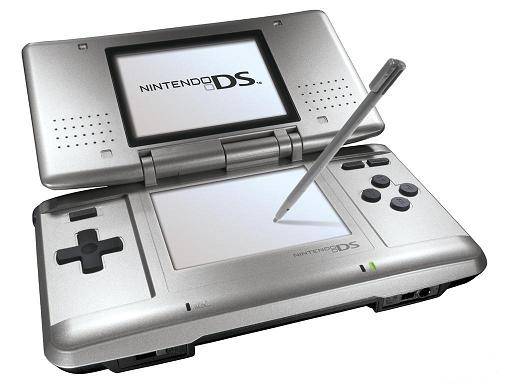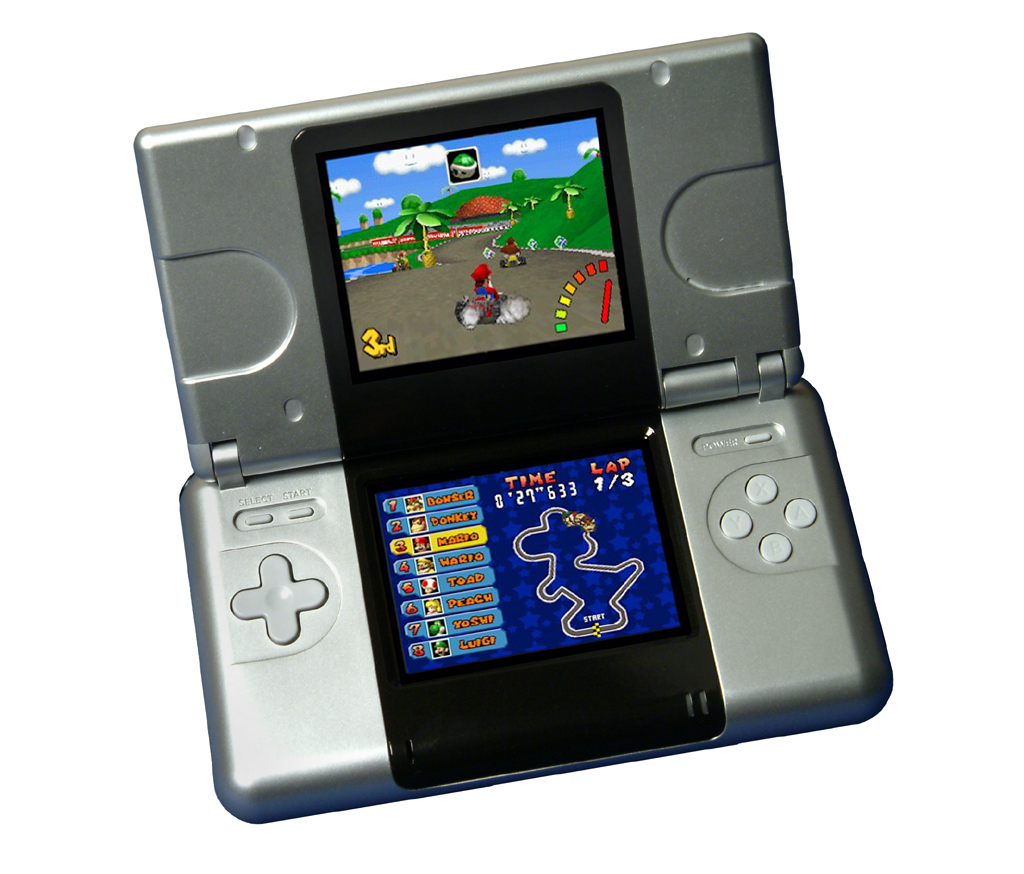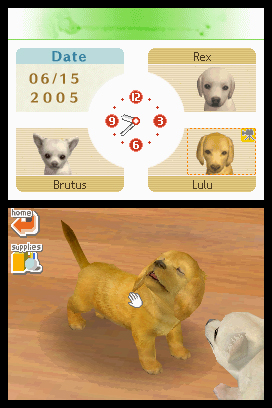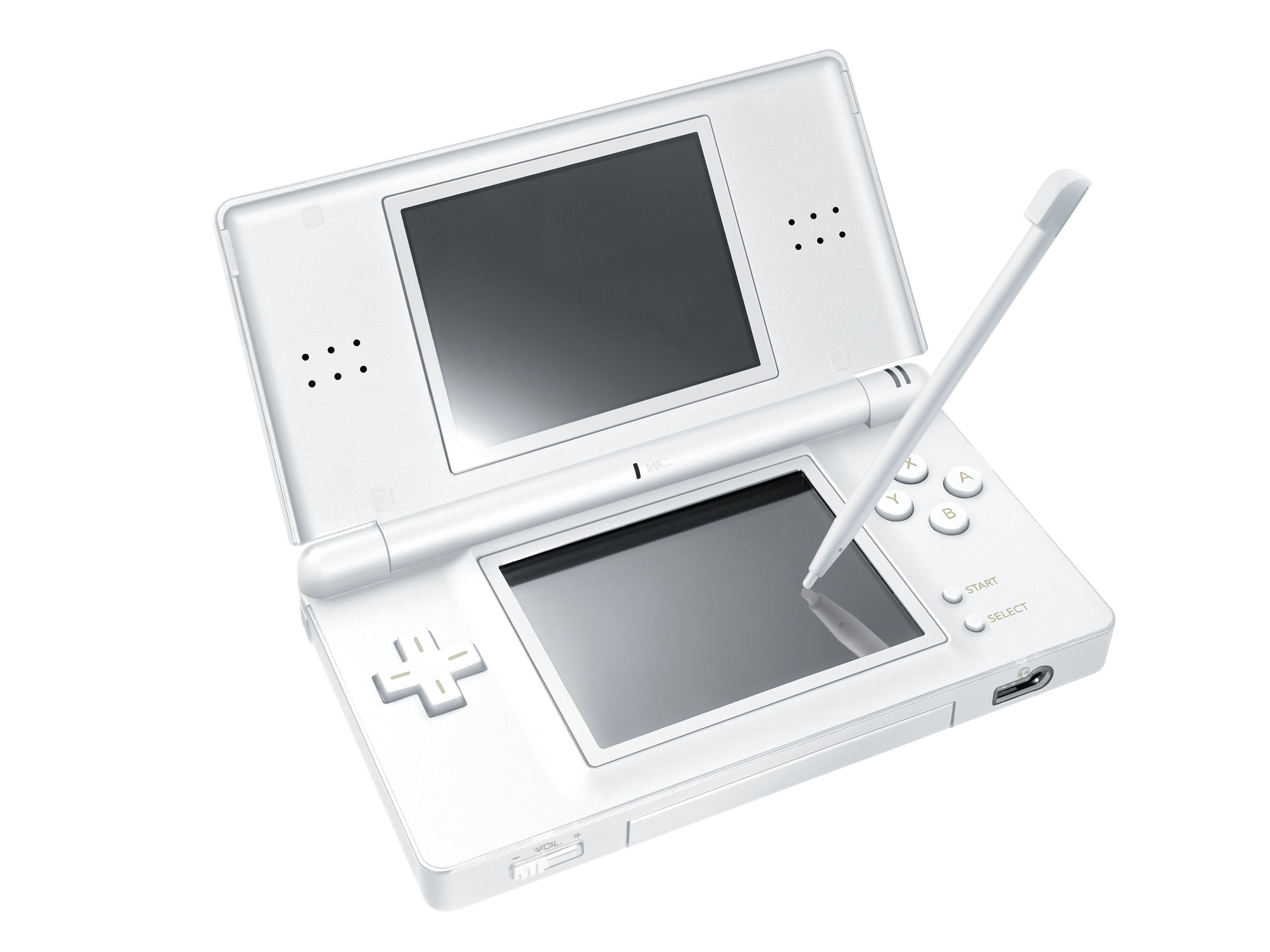This November, the Nintendo DS will be completing seven years on the market. Few game systems have ever seen that kind of longevity- most of them are phased out around the five year mark, and their successors take centerstage. However, the DS is one of the rare exceptions to that rule, and joins the ranks of systems such as the NES, the Gameboy and the Playstation 2 that continued to get steady software and hardware support even well after their time on the market was up by conventional understanding.
There is a reason, of course, that the DS lasted this long. A reason that the odd, quirky, two screened handheld sold in excess of 150 million units worldwide to become the highest selling game system of all time, second, perhaps, only to the Playstation 2, if that. A reason that, even after the release of its high tech, persistently connected successor, the DS continues to outsell almost every other system on the market. A reason that the DS found such unprecedented success across all demographics, casual and hardcore alike.
The reason for all of that, and more, is that Nintendo simply got it right. Like never before, the DS hit all the right chords, and continued to do so throughout its lifetime, attracting major third party support and a swarm of users. And while the launch of the Nintendo DS was marred by some major mishandling by Nintendo (not entirely dissimilar to the way they have fudged up the 3DS launch, but not quite as serious), once the system found its footing, there was no turning back, and only a steady, relentless march onwards.
However, for all of us, it would perhaps be best if we stopped and considered just how the DS evolved from a machine that everyone believed was destined for instant failure, particularly in the face of the impending PSP, to a system that is often mentioned in the same breath as the PS2. It is worth looking back and noting on some eerie similarities between the handheld war then, and the upcoming one between the 3DS and the Vita. More than anything else, it is perhaps, worth noting the DS’s trajectory, if only to demonstrate just how unpredictable the gaming industry can often be.
The Nintendo DS was first announced at E3 2003 as a new game format that Nintendo was working on. Little specifics were revealed at that time, except for a couple that managed to leak through to the public. Initial impressions were not in the least encouraging: all that Nintendo had been able to state with complete certainty was that it was a handheld with two screens to provide multiple perspectives of gameplay to the player. That’s it. Compare this to the PSP’s debut, where it was introduced as a ‘console in the pocket,’ a full fledged multimedia device that would bridge the chasm that separated handheld and console gaming, and one that would act as an all purpose media device in the pocket, and it won’t be hard to understand why everybody’s sympathies were with the PSP at the time.
Nintendo unveiled a prototype DS the next year. While the hardware itself looked flimsy and horrendous, its capabilities impressed quite a few of the observers. The demo for Metroid Prime Hunters for instance, demonstrated the 3D capabilities of the hardware pretty nicely, with quite a few observers remarking that on the DS’s small screen, the graphics looked better than many late generation N64 games. However, barring this, the reception to the handheld was still largely muted, and it is not hard to see why. This unveiling was coupled with an announcement of the complete set of features for the DS, which included a touch screen, a microphone, two dated processors and Wi Fi. This unholy Frankenstein of a system, this mash of seemingly incompatible technologies, seemed to confirm everybody’s initial suspicions: Nintendo had panicked. In the face of competition from the impending PSP, they had probably decided to throw in everything including the kitchen sink, and mix up this contraption that would likely never work.
However, Nintendo had given this system it’s all. In its own words, the DS could spell the death knell for them if it failed. ‘If the DS is successful,’ a Nintendo exec had remarked in one interview, ‘then we will rise to heaven. But if it fails, we will sink to hell.’
Unfortunately, for all appearances, the DS seemed destined to fail, and it looked like just as the Playstation had driven the N64, and by extension, Nintendo, out of the home console market, so the PSP would steal the DS’s marketshare, and conclusively bring about the end for Nintendo, whose handhelds had been their sole steady source of revenue for quite a while now.
The system launched amidst a spate of advertising and heavy fanfare later in 2004 for an attractive pricepoint, beating the PSP to the market by several months. The launch was surprisingly successful, with Nintendo managing to meet its rather optimistic targets for the device. However, the DS, for its first several months on the market, continued to lack one very important thing- it lacked good games. The system launched with Super Mario 64 DS, a DS remake of the popular N64 title, as well as a demo of the upcoming Metroid Prime: Hunters game. But that was basically all that was worth playing on the system. The rest of the launch lineup was crap, and worse still, its slate of future releases looked absolutely barren. What was worse about this lineup was that all the games that were released on the system took zero advantage of any of the DS’s ‘unique’ capabilities. Super Mario 64 DS tried to debut touch screen control much like its N64 progeny had debuted analog stick control over half a decade ago, but the result was mixed. Metroid Prime Hunters actually provided a compelling touch control scheme. But at no point was the inclusion of the second screen over a touchpad justified, much less a microphone or the inclusion of Wifi.
Things did not improve. Just a few months later, the PSP launched, and it had a healthy, well rounded launch lineup that adequately represented its capabilities, graphical and otherwise. Following its launch, the PSP continued to get some major third party games, and its future looked increasingly bright. For Nintendo, this must surely have been a period of panic, as the DS was consistently outsold by the PSP over this period, and the sales lead that it had established seemed to be dwindling.
To add insult to the injury, third party support for the DS seemed negligible, and all the system seemed to be getting were hastily put together shallow minigame compilations or crappy GBA ports, none of which were doing justice to the system’s admittedly dubious capabilities. The PSP, on the other hand, was moving from strength to strength, as it lived up to its initial promise of providing the gamers with a ‘console in the pocket,’ and a true one stop multimedia device.
You couldn’t possibly blame third parties, though- the PSP was notoriously difficult to develop for, yes, but at least it was a conventional system, and you knew exactly what kind of results you were expecting from a finished game on the system. But how could they possibly make a touch screen, a microphone, two processors and wireless connectivity work together, in their favour, in a single game? The DS, it seemed, was just the Sega Saturn all over again, chock full of useless technologies, and too complex for its own good, destined to an early death, and representing the total end of Nintendo’s presence in the hardware market.
Until Nintendogs.
The pet simulator was a surprise hit for everybody- nobody expected this unassuming under the radar game to actually accomplish anything, but it was the first game to truly showcase how things should be done on this odd new handheld. With Nintendogs, Nintendo properly demonstrated the use of every single feature under the DS’s hood for the first time, and the effect was simply marvellous, as Nintendogs turned into an unforgettable experience for all who played it. The launch of the game suddenly resulted in success in the system from absolutely unexpected quarters- from an audience outside of the traditional gaming market.
Suddenly, everyone was taking an interest in the DS, as to them, it was presented not as a game device, but as a gadget, a lifestyle product. The newfound ‘casual’ audience, all the mothers, and relapsed gamers, and grandfathers and grandmothers, teenage girls and more, all of them who would never have touched a game device before, suddenly went out in drives to buy the system. And when Nintendo followed up Nintendogs with Brain Age for them, the system exploded at retail overnight.
The wild success of Nintendogs was followed by the launch of the Nintendo DS Lite, a hardware redesign that transformed the ugly duckling into a beautiful swan- the DS became indisputably Nintendo’s best looking piece of hardware with the DS Lite. Suddenly, it became desirable and cool to own a DS, and that was something that had never been true of a Nintendo system before.
However, it was on the hardcore front that the DS suddenly began to shine. Nintendo finally released Mario Kart DS, and that was the game that, along with Advance Wars: Dual Strike, single handedly sold gamers onto this handheld, proving that the technology didn’t matter one bit, but the games that utilized that technology did. Following up this two punch with a steady stream of first party titles that lasted all the way into earlier this year, they released Kirby’s Canvas Curse, Metroid Prime Hunters, New Super Mario Bros, Pokemon Diamond and Pearl, Fire Emblem Shadow Dragon, The Legend of Zelda: Phantom Hourglass, Advance Wars: Day of Ruin, Golden Sun Dark Dawn, Mario and Luigi: Bowser’s Inside Story, Pokemon Platinum, Pokemon HeartGold and SoulSilver, Pokemon Black and White, The Legend of Zelda: Spirit Tracks and more. Each title was well received, and each title promptly proceeded to smash records at retail.
However, more than even the first party games, the DS is probably one of those rare Nintendo systems that will be remembered for the third party games that it got. Games like Castlevania: Dawn of Sorrow, Ninja Gaiden Dragon Sword, Final Fantasy IV, Dragon Quest V, The World Ends With You, Call of Duty: Modern Warfare, Dementium: The Ward, Professor Layton and the Curious Village, Shin Megami Tensei: Devil Survivor, Okamiden, Ghost Trick, Phoenix Wright Ace Attorney, Dark Void Zero, 999: Nine Hours, Nine Persons, Nine Doors, Big Bang Mini, Picross 3D, Shantae’s Risky Revenge, Picross 3D, Dragon Quest IX, Sonic Colors, Scribblenauts and Grand Theft Auto: Chinatown Wars represented a steady stream of AAA support for the system that never once for a moment died out, and ensured a stream of quality content for the system even as all three home consoles struggled to find their footing in the market.
But the DS represented so much more- it was perhaps the last standing haven of quality JRPGs. As consoles continued to get bastardized JRPGs that compromised on the genre’s integrity, the DS continued to get quality efforts, from longstanding traditional ones like Dragon Quest IX to quirky and new ones like The World Ends With You.
At the same time, the DS also remained the last retail platform where genres such as 2D sidescrollers, shoot em ups and platformers could survive. Once mainstays of gaming, these 2D centric genres had been threatened to the verge of extinction with the dawn of polygonal 3D gaming, but they found a new lease of life on the DS, and they thrived there.
The Nintendo DS turns seven later this year, and what a journey it’s been for the quirky, odd handheld. The legacy of the DS has left an indelible mark on the industry- it led to the resurgence of Nintendo,and it re-established their dominance over the market. It led to the Wii, which has arguably, for good or for bad, changed the face of gaming forever. It is also the only system so far to demonstrate how casual and hardcore gaming can co-exist, without one, in any way possible cannibalizing the other. For a handheld that was relegated to failure status even before it launched, that’s a pretty impressive achievement.
Happy birthday, Nintendo DS. You and your legacy, both live on.
To celebrate the success of the DS, even as it continues to outperform its own successor, the 3D enabled 3DS, we at Gamingbolt will be posing a stream of DS related content to commemorate its success over the coming days. This will include the usual suspects, like a list of the best DS games and all, as well as some unexpected editorials and features. Stay tuned.

















